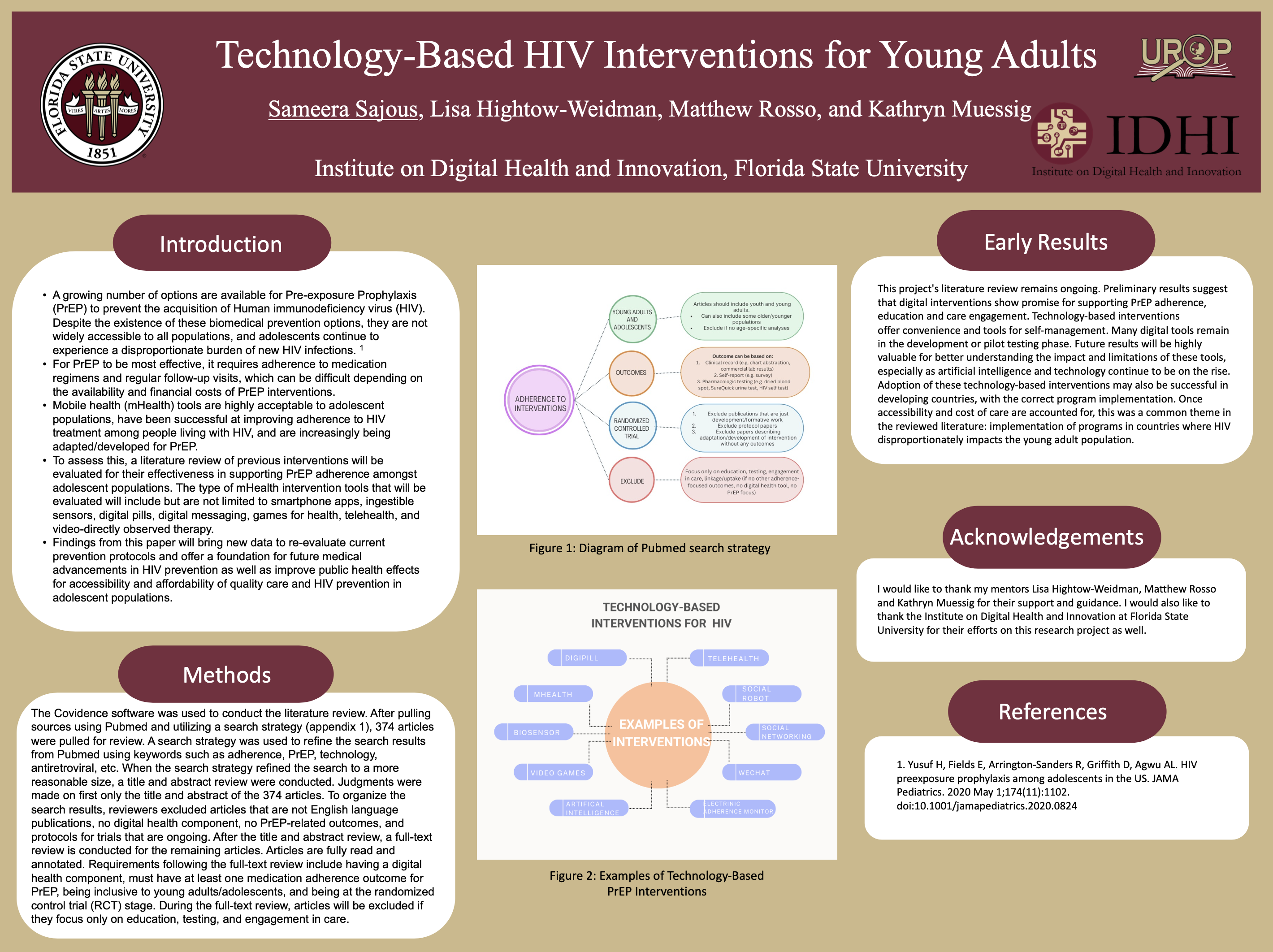Research Symposium
24th annual Undergraduate Research Symposium, April 3, 2024
Sameera Sajous Poster Session 3: 1:30 pm - 2:30 pm /255
BIO
My name is Sameera Sajous, and I am a second-year pre-medical student majoring in Public Health and economics. On campus, I am involved in Minorities in Public Health, Phi Delta Epsilon pre-medical fraternity, and the National Society of Black Women in Medicine. I have a particular interest in researching various health disparities, especially of underrepresented populations, and I hope to continue this kind of research after my undergraduate studies.
Technology-Based HIV Interventions for Young Adults
Authors: Sameera Sajous, Kathryn MuessigStudent Major: Public Health and Economics
Mentor: Kathryn Muessig
Mentor's Department: Institute on Digital Health and Innovation Mentor's College: College of Nursing Co-Presenters:
Abstract
A growing number of options are available for Pre-exposure Prophylaxis (PrEP) to prevent the acquisition of Human immunodeficiency virus (HIV). Despite the existence of these biomedical prevention options, they are not widely accessible to all populations, and adolescents continue to experience a disproportionate burden of new HIV infections. For PrEP to be the most effective, it requires adherence to medication regimens and regular follow-up visits, which can be difficult depending on the availability and financial costs of PrEP interventions. Mobile health (mHealth) tools are highly acceptable to adolescent populations, have been successful at improving adherence to HIV treatment among people living with HIV, and are increasingly being adapted/developed for PrEP. To assess this, a literature review of previous interventions will be evaluated for their effectiveness in supporting PrEP adherence amongst adolescent populations. The type of mHealth intervention tools that will be evaluated will include but are not limited to smartphone apps, ingestible sensors, digital pills, digital messaging, games for health, telehealth, and video-directly observed therapy. Preliminary results suggest there will be improved commitment and HIV education by adopting technology-based interventions due to the improved convenience of the treatments these measures will bring. Findings from this paper will bring new data to re-evaluate current prevention protocols and offer a foundation for future medical advancements in HIV prevention as well as improve public health effects for accessibility and affordability of quality care and HIV prevention in adolescent populations.
Keywords: HIV, PrEP, Medicine, Public Health


